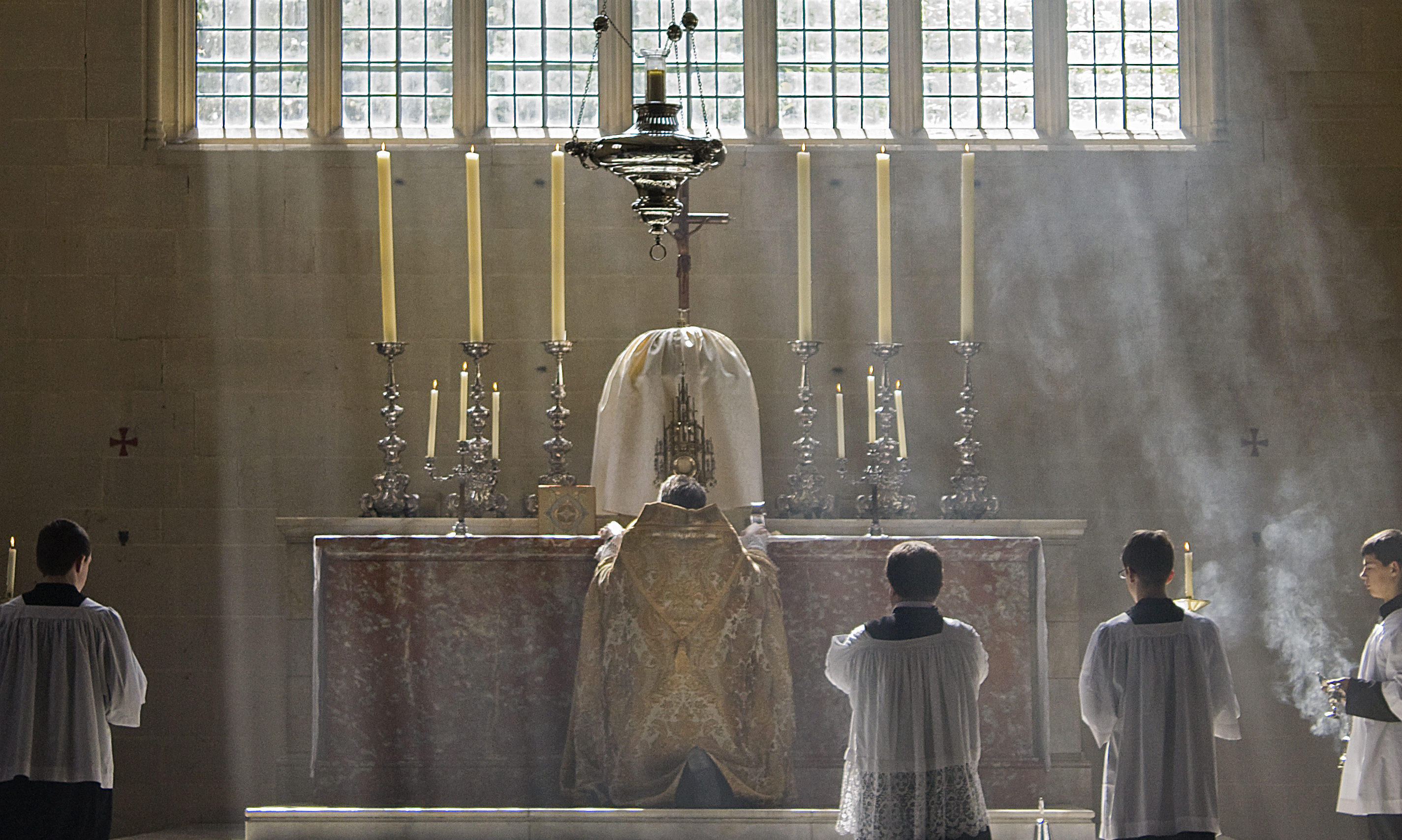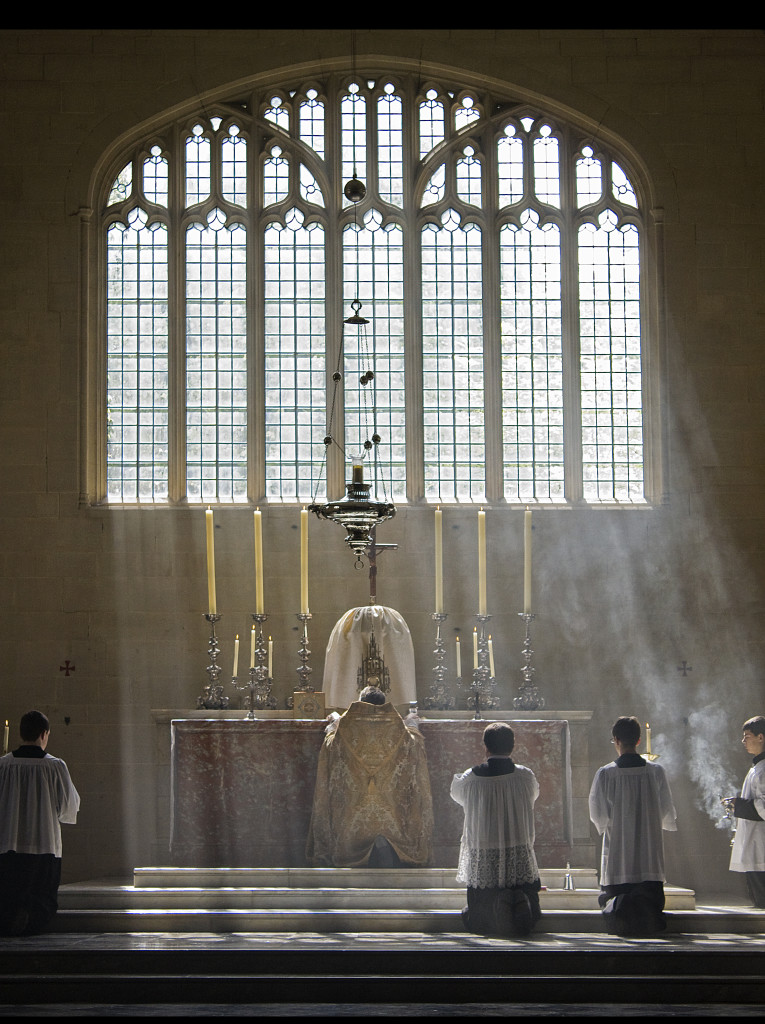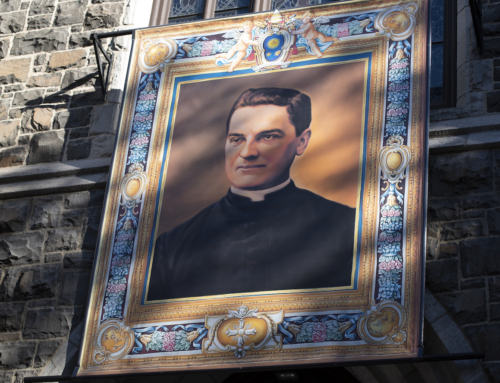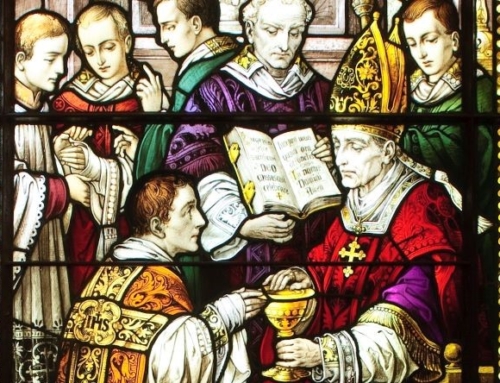Robert Cardinal Sarah with Nicolas Diat, God or Nothing: A Conversation on Faith. San Francisco, CA: Ignatius Press, 2015.
It is said of St. Dominic that he spoke only to God or of God, the former being necessary preparation for the latter. For the saintly founder of the Order of Preachers, the logic was clear: how could one dare to speak of God without already being on speaking terms with God? First being possessed by the Word, St. Dominic was then able to speak a word to a world sorely in need.
In this age, Christ still chooses and invites men to become wholly possessed by Him so as to then go out and preach the Gospel to the nations as priests. One of these men is Robert Cardinal Sarah, Prefect of the Congregation for Divine Worship and the Discipline of the Sacraments. Over the course of several months, Cardinal Sarah sat down with French journalist and author Nicolas Diat, the result of which is God or Nothing, a book filled with fascinating insights into a man who but for the grace and election of God might have never left the small village of his birth, high in the Guinean mountains of West Africa, some 310 miles from the nearest large city.
In the first part of the book, Cardinal Sarah provides an account of his childhood. The Catholic faith was first introduced to his village by the Holy Ghost Fathers, a missionary order whose intense life of prayer helped to convert his family and plant the first seeds of his priestly vocation. At age eleven, never having ventured out of his own village, he departed to begin seminary formation. At that time, the newly independent government of Guinea, under the dictatorship of Sékou Touré, was oppressing the Church. Sarah had to receive his education away from home, travelling to Nancy, France.
While he was in France, the situation back home had deteriorated to such an extent that the only means of communication for the seminarians and their families was when the Archbishop would make a visit. The Archbishop never had correspondence from Sarah’s family, however, since Sarah’s village was over 300 miles from the capital city. God was to be his sole support, nothing else. Sarah poignantly notes—when asked by Diat if his journey to ordination in 1969 seemed somewhat miraculous—that of all the seminarians he had begun with from Guinea, he was the only one who persevered. He responds: “In fact, I have never doubted my vocation. Although there were events that made me sad, they were never anything but small wounds that never shook my love for God. I remained faithful because I truly loved God as much as a poor sinner can love him, given his own limitations. In my heart I always had the assurance that God loved me” (52).
As God’s providence would have it, Cardinal Sarah was the last priest ordained by Archbishop Tchidimbo before his arrest by the government on Christmas Eve 1970. For more than eight years, the archiepiscopal see of Conakry would remain vacant, as the Archbishop was imprisoned and routinely tortured. Then in April 1978, Pope Paul VI asked Sarah, then 33, if he would be the next archbishop. The words of the Pontiff’s envoy that evening have remained with him all these years: “’The service and the mission that God is entrusting to you through this office necessarily involve the cross. But God will be with you to support you” (59).
While reading this book, one gets the impression that the Cardinal has been sustained in all his episcopal assignments—the Archbishopric he held in Guinea until an assassination plot precipitated his move to Rome, Secretary of the Congregation for the Evangelization of Peoples, appointment to the College of Cardinals, Prefect of the Pontifical Council Cor Unum for Christian and Human Development, and his current post as the head of Divine Worship and the Discipline of the Sacraments—by an unflinching and contagious trust in God.
While the autobiographical content would make for a fine and worthwhile read in itself, what makes God or Nothing a great book is Cardinal Sarah’s and Diat’s wide-ranging discussion on the Church. Within the interview, one finds the Cardinal’s thoughts on such timely issues as the liturgy, communion for the divorced and remarried, gender theory, the spread of Western secularism into traditionally conservative cultures such as those in Africa, and many others. Yet this part of the conversation is perhaps necessarily prefaced by the Cardinal’s simple and unhesitating answer to the question of where is the best path for the Church. His answer? She must follow along the path closest to God.
It may seem absurdly obvious to say that God must be the center of ecclesiastical activity, but Sarah explains the current challenge:
The circumstances and developments in the world surely do not help us to give God his proper place. Western societies are organized and live as though God did not exist. Christians themselves, on many occasions, have settled down to a silent apostasy. If the concerns of contemporary man are centered almost exclusively on the economy, technology, and the immediacy of material happiness that has been wrongly sentimentalized, God becomes distant (109).
Shepherd that he is, Cardinal Sarah does not merely present the problem and leave us to work out a solution for ourselves. Nor can he give us his own program for apostolic success. He says,
Well, then, given this existential abyss, the Church has only one option left: she must radiate Christ exclusively, his glory and his hope. She must immerse herself more deeply in the grace of the sacraments, which are the manifestation and the continuation of God’s salvific presence in our midst. Only then will God be able to find his place again. The Church proclaims the Word of God and celebrates the sacraments in the world. She must do this with the utmost honesty, a genuine rigor, a merciful respect for human miseries that she has the duty to lead toward the “splendor of truth,” to quote the opening words of an encyclical by John Paul II. (109)
These are the words of one whom Diat, in his introduction, calls “a friend of God, a merciful and forgiving man, a man of silence, a good man” (12). In a Dominican vein, one might add that these are the words of a man who has said with St. Thomas Aquinas, “Non nisi te, Domine—nothing but you, Lord.”
Those who read the life and thought of Robert Cardinal Sarah will be drawn closer to the One who enlightened the path of a humble Guinean man and in truth enlightens every man coming into the world who comes to believe in His name (cf. Jn 1:9-12). During the 800th Jubilee of the Order of Preachers, founded to preach the Truth to those who had fallen away from it, this book is a fruitful instrument worthy of meditation and study.
To download a printable PDF of this Article from
Dominicana Journal, Summer 2016, Vol. LIX, No. 1, CLICK HERE.








